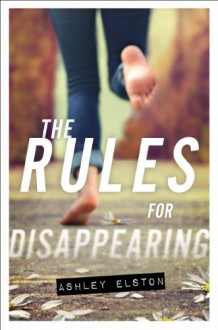
Hypnotherapy, also referred to as clinical hypnosis, is all about focusing on a person’s subconscious and conscious mind to foster behavioural and emotional change. It can be used to treat a variety of different conditions, like phobias, stress and anxiety, as well as post-traumatic stress disorder (PTSD). One session of hypnotherapy lasts about 60-90 minutes, while an entire course of treatment can vary anywhere between two sessions for several weeks to months, depending on the severity of the condition and the success of the treatment.
Main concepts of hypnotherapy
The treatment revolves around the model of the mind that features a conscious part and a subconscious part. They function differently and work in unison to navigate a person in their daily life.
- The conscious mind – is where focus resides. This part of the mind is responsible for attention at any time. This means it notes things like lights, sounds, activities and various tasks the person is engaged with. A person can only engage their conscious mind to pay attention to a few things at a time.
- Subconscious mind – it contains all of the memories, beliefs, habits and learnings of the past. It is tasked with keeping knowledge on important matters, from very simple ones like tying one’s shoes, to knowing how to speak a foreign language they have learned. It also hides the aftermath of traumatic events and experiences, which, in the case of PTSD, it is within the subconscious mind that painful memories and experiences get stuck. When it comes to hypnosis, it is the subconscious mind that therapists work on. This state of mind is more easily accessible and the therapist can make useful suggestions to it, to help a person overcome their past traumatic experiences.
Who is this treatment right for?
Anyone suffering from past trauma and struggling with PTDS symptoms can easily benefit from hypnotherapy. The symptoms often range from mild to severe and can sometimes persist from mere months to years. That is not to say hypnotherapy alone should be utilised for people with severe symptoms, but it can be a great addition as a complementary treatment. When added to psychotherapy and cognitive behavioural therapy, it can contribute a great deal in overcoming the negative symptoms and turning the impact of past trauma around.
How does hypnotherapy help?
- Pretty much everyone experiences a traumatic event in their life. That is when the brain’s ‘fight or flight response triggers and kicks the sympathetic nervous system into action. However, oftentimes with PTSD, a person hasn’t properly processed the stressful situation. When they are reminded of it, their fight or flight response triggers again, causing distress without actual need. This is what hypnotherapy aims to address.
- It introduces relaxation – the goal of hypnotherapy is to help the person enter a state of hypnotic trance through complete relaxation. This process acts as an antidote to many of the processes surrounding PTSD.
- Dealing with triggers – during hypnosis, the therapist will identify stress triggers. Sometimes these are non-threatening stimuli, which cause an overreaction. Knowing the triggers, the therapist can then start making suggestions to change the subconscious perception of these triggers and deem them in a non-threatening and non-stressful manner.
- Self-management tools – hypnotherapists often suggest a variety of self-management tools to help people with PTSD even further. This not only leads to effective treatment of the present issue but also recurring symptoms in the future. These tools can include self-hypnosis, deep breathing exercises and guided meditation.
- It introduces relaxation – the goal of hypnotherapy is to help the person enter a state of hypnotic trance through complete relaxation. This process acts as an antidote to many of the processes surrounding PTSD.

 Log in with Facebook
Log in with Facebook 







